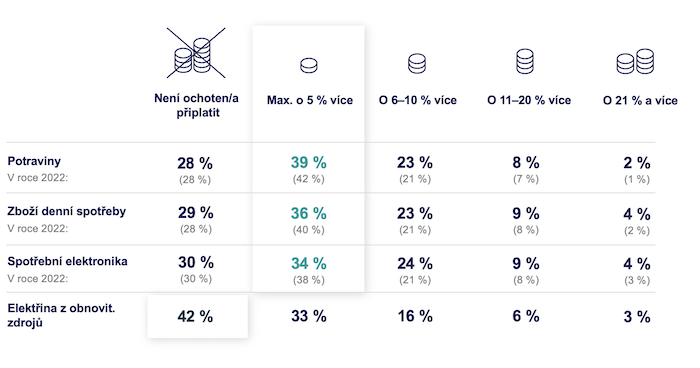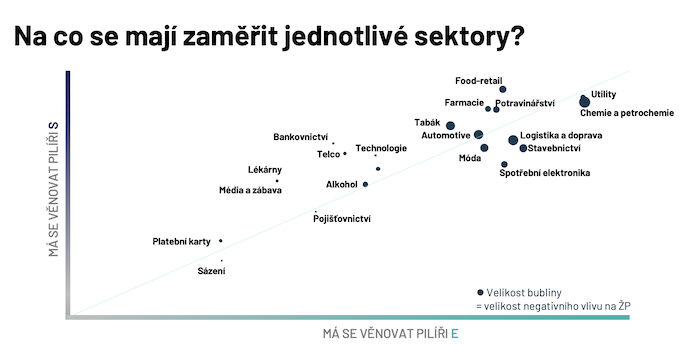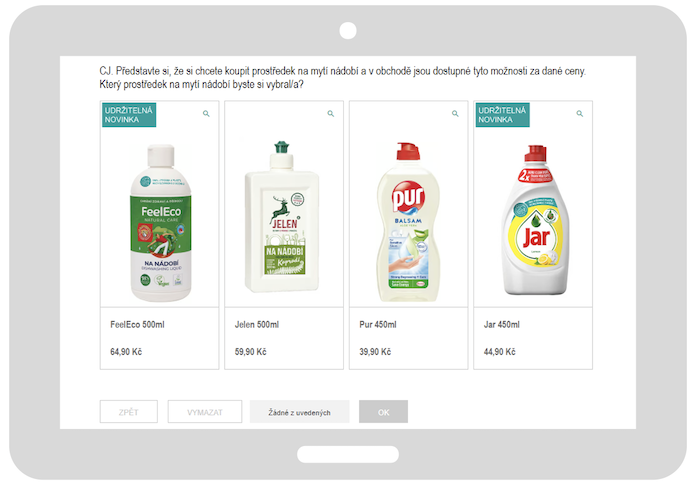The Czech public is mostly unfamiliar with the abbreviation ESG, the letters that stand for the English words Environment, Social and Governance. However, it has high expectations of companies in the area of sustainability and social responsibility. This results from a survey conducted by Ipsos.
For several years now, large corporations have had to report on their carbon footprint and emissions, waste management, product safety, working conditions for employees or the fight against corruption. From this year, the new European directive CSRD (The Corporate Sustainability Reporting Directive) comes into force, which makes ESG reporting mandatory also for companies with more than 250 employees, turnover exceeding CZK 1 billion and assets exceeding CZK 500 million. In two years, this will also apply to small and medium-sized enterprises that are listed on the stock exchange.
Up to 87% of Czechs believe that companies should help them behave responsibly.
According to an online survey by Ipsos, 60% of Czechs have never heard of ESG and only 4% know what the acronym stands for. Only 17% of consumers actively find out about responsible corporate behaviour. Despite this, they have high expectations of companies in the area of corporate social responsibility and sustainability. Up to 72% of respondents believe that social responsibility should be among the core values of every company, 87% of Czechs believe that companies should help customers behave responsibly, and two-thirds of the population consider themselves sustainable or ethical consumers.
Half of Czechs are also willing to pay extra for responsible or sustainable products, but only symbolically, by no more than 5% at most. Moreover, this willingness has decreased over the last two years due to inflation.
 Czechs' willingness to pay extra for sustainable or responsible products; Source: Ipsos
Czechs' willingness to pay extra for sustainable or responsible products; Source: IpsosMore than half of the Czech population (52%) is part of the so-called comfortable majority, which tries to live sustainably but without significant restrictions. A fifth of the population (19%) are pragmatists who want to live sustainably but find it impractical. For these two groups, the responsibility of companies, products or services will only be a co-benefit, so they cannot be expected to pay significantly more for responsibility. Only 14% of the population, the so-called sustainable enthusiasts, are willing to do so, even at the cost of higher costs and less convenience. Only 10% are non-participants, who do not care about sustainability and social responsibility, and for 5% of the population, the so-called rejectionists, these are useless fictions.
First and foremost, Czechs expect companies to behave ethically and in accordance with the law.
Czechs expect companies to behave ethically in accordance with the law in the first place. This is followed by activities in the area of sustainability or social responsibility. Whether to focus more on improving the life of society or protecting the environment is closely linked to the business sector. For example, banks should focus more on social responsibility, energy or petrochemical companies more on sustainability.
 What the sectors should focus on, pillar S = social responsibility, pillar E = environment; Source: Ipsos.
What the sectors should focus on, pillar S = social responsibility, pillar E = environment; Source: Ipsos.Sustainable behaviour pays off especially in the long run. It builds trust, especially with younger generations, who will soon become the strongest purchasing power. In addition, a survey by Ipsos, which analysed over 850 concepts with keywords such as sustainable, plastic, recyclable, biodegradable, compostable, eco-friendly, environmental, planet, carbon, waste, plant-based, rPET and others, showed that sustainable concepts have a 4% higher trial potential.
The experiment, which involved 883 household shoppers, tested which brands with sustainable messages consumers are interested in. Four dishwashing products were on offer: a sustainable novelty in packaging made from recycled ocean plastic from Jar, a sustainable novelty from FeelEco, and products from brands such as Jelen and Pur. People were willing to pay an extra 1-5% of the original price for the sustainable packaging. However, with Jaru, which bases its positioning primarily on efficiency, the "comfortable majority" would expect it for almost free. Smaller brands can earn more on such packaging.
 883 household shoppers took part in the experiment; Source: Ipsos.
883 household shoppers took part in the experiment; Source: Ipsos.Sustainability is not a determinant of consumer decision-making per se. However, carefully selected claims can be a differentiator in a given category. If a company chooses to communicate its sustainability through advertising, it should avoid common mistakes that are associated with lower branding and recognition. Such ads are often not linked to what people like about the brand, are created as an extra and are not sufficiently linked to the brand values. It is also a common problem that such ads are very similar to each other.
Responsibility communication should therefore be linked to the business area and be in line with the brand positioning. It is a good idea to use a unified communication concept to help link accountability communication to the brand.
Source: mediaguru.cz

